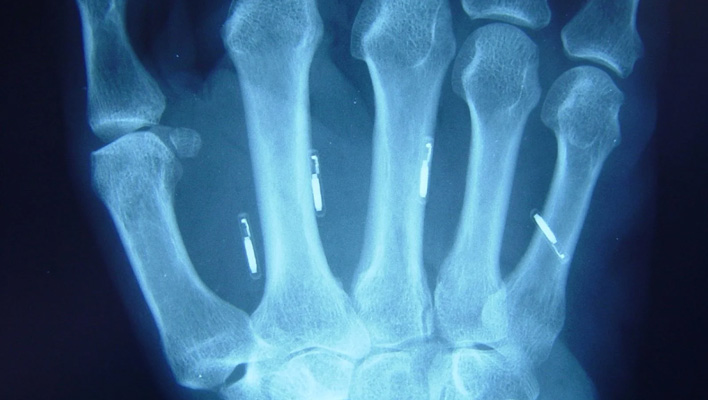Engineer Implants 25 Chips Under Her Skin To Unlock Doors And Other Cool Party Tricks

Miana Windall, a software engineer, walks around with 25 implants in her body, comprised of various RFID (Radio Frequency Identification) technology and magnets. At the DEF CON conference Windall shared her experience with bio-implants, how she became interested in the idea in the first place, the process of designing and installing the implants (with no electronics experience, mind you). Her mission began with the fact that there were no under-skin RFIDs that worked with employee badging systems, which set her on the path to tinker with programming the 25 chips for her own personal use.
It must be noted that such implants are passive, only reacting to a corresponding reader—exactly the way you have to swipe an RFID-enabled payment card at the store to make a purchase. There are no AI-powered Skynet-connected chips standing by to take over your home security system or computer at the touch of the implantee's hand.
Likewise, it seems like the security risks for the implantee is equally low. Not only are modern RFIDs relatively small and discrete, the likelihood of a third-party being able to steal personal data from the implants is not high because the limited range of readers on top of whatever safeguards the programmer built into the RFIDs.
Implanted RFIDs add a greater layer of safety, since you can still lose physical cards. Of course, there's the problem of convincing consumers of surgically installing something in their body. It is precisely this reason why implants are so attractive to companies seeking effective aways to embed access credentials, such as car access keycards and the aforementioned payment cards.

